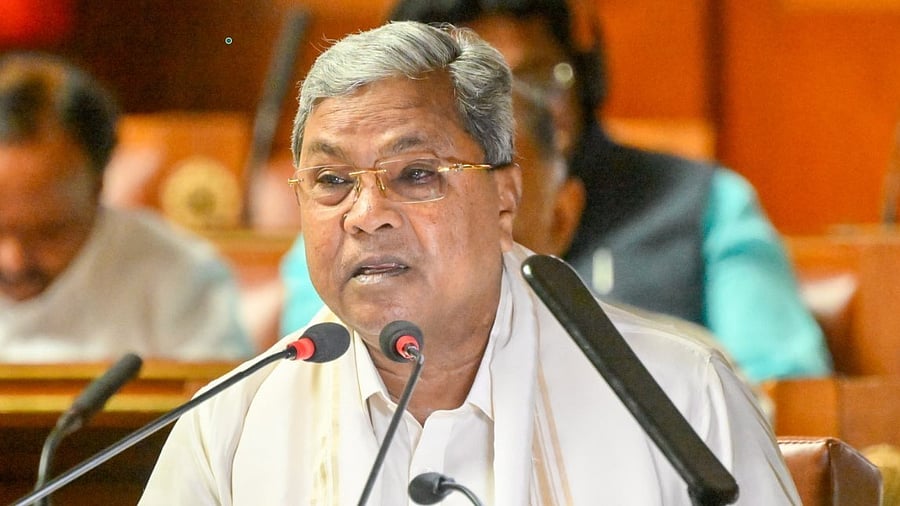
Karnataka CM Siddaramaiah
Credit: Karnataka CMO
Bengaluru: Asserting that the future of India could not be built on exclusion, but on dignity, opportunity and rightful power of the underprivileged, Chief Minister Siddaramaiah on Tuesday stressed that Ahinda was not a vote bank, but voice of India’s conscience.
Ahinda is the Kannada acronym for minorities, backward classes and Dalits.
Addressing the two-day AICC OBC advisory council meeting here, the CM stressed that India’s future must be founded on inclusion, dignity and empowerment of underprivileged communities.
At a time when divisive forces and privileged classes threaten social democracy, Siddaramaiah called for a united struggle for recognition, dignity and rightful power for marginalised communities.
He urged the council to move beyond identity politics and build solidarity among the oppressed by invoking Dr B R Ambedkar’s mantra, ‘Educate, Agitate, Organise’.
Highlighting the AICC OBC advisory council’s role as a key institutional mechanism, the CM emphasised its responsibility to transform the caste census from a political debate to a constitutional necessity.
The council must ensure that the voices of backward classes shape policy decisions, fostering leadership from within these communities by mobilising youth, intellectual capital and grassroots strength.
Siddaramaiah criticised the BJP and Sangh Parivar for exploiting caste divisions to polarise society and reducing OBCs to mere symbols.
Recalling the 2011 socio-economic and caste census (SECC) conducted under UPA-2 — the first such exercise since 1931 — he charged that the BJP failed to effectively use this data for the welfare of backward classes.
He emphasised the urgent need to expand economic opportunities, calling for reservations not only in government jobs and promotions, but also in private sector employment and contracts.
Stressing that true change required more than policies, the chief minister underscored the need to build strong consciousness among backward classes — raising awareness of social realities, collective strength and equal rights. This, he said, would fuel aspiration, solidarity and long-term social transformation.
Strongly advocating for a reservation policy based on caste census data, he stressed for a 75% reservation or proportionate representation and also demanded guaranteed proportional representation for backward classes in all decision-making bodies.
Congress veteran B K Hariprasad later told reporters that the council would adopt three resolutions — political, social and economic — on the concluding day of the meeting.
